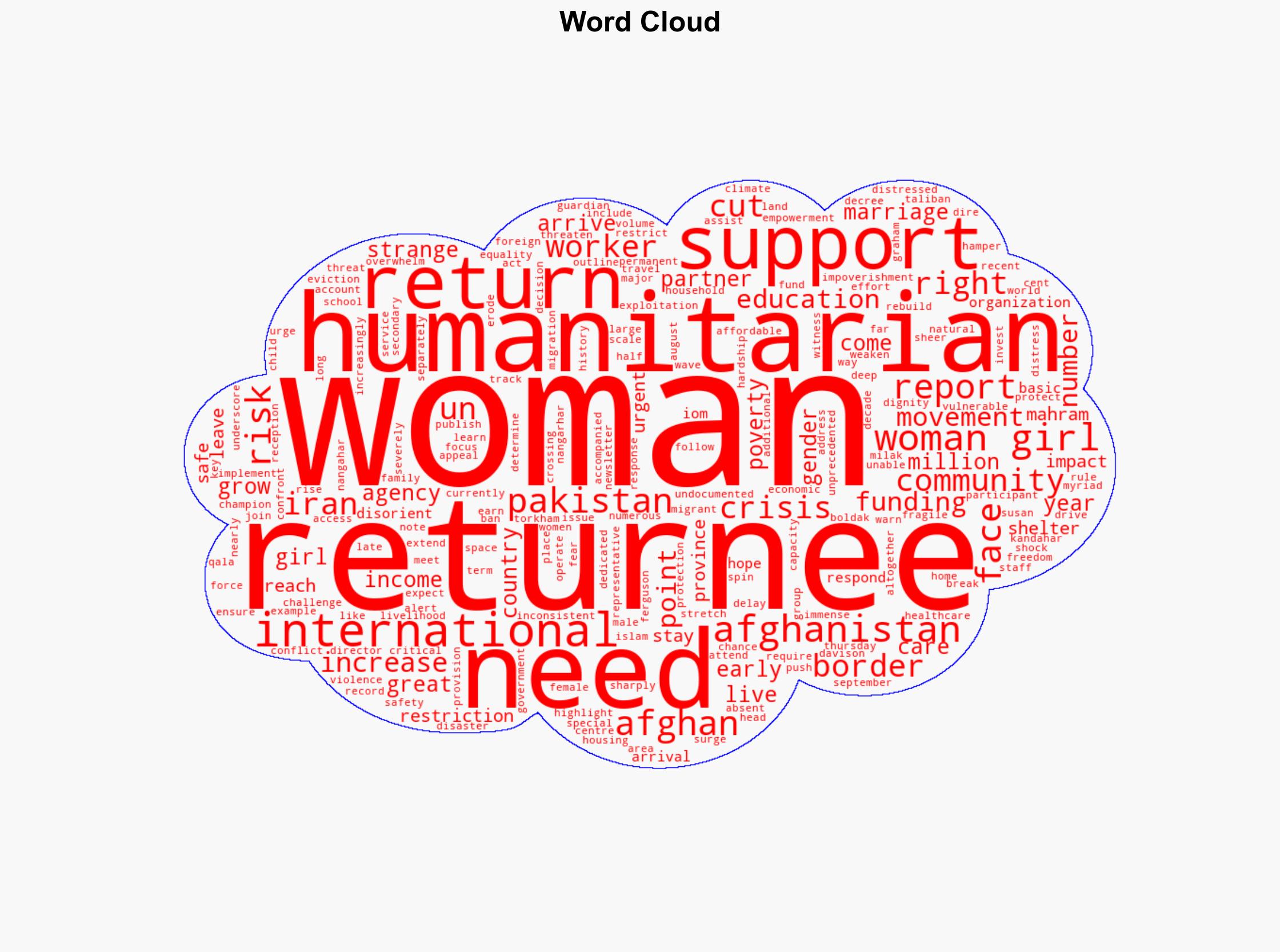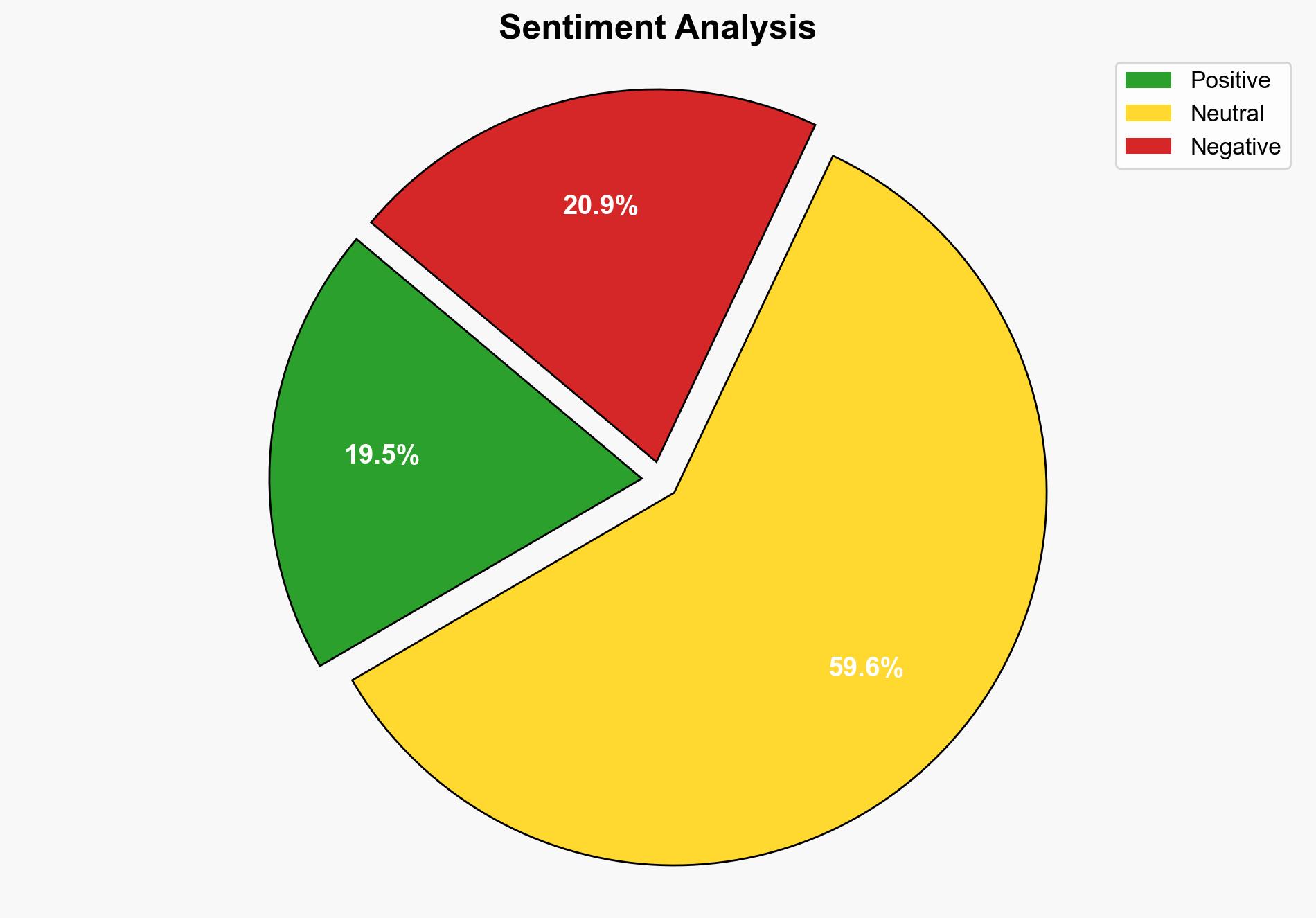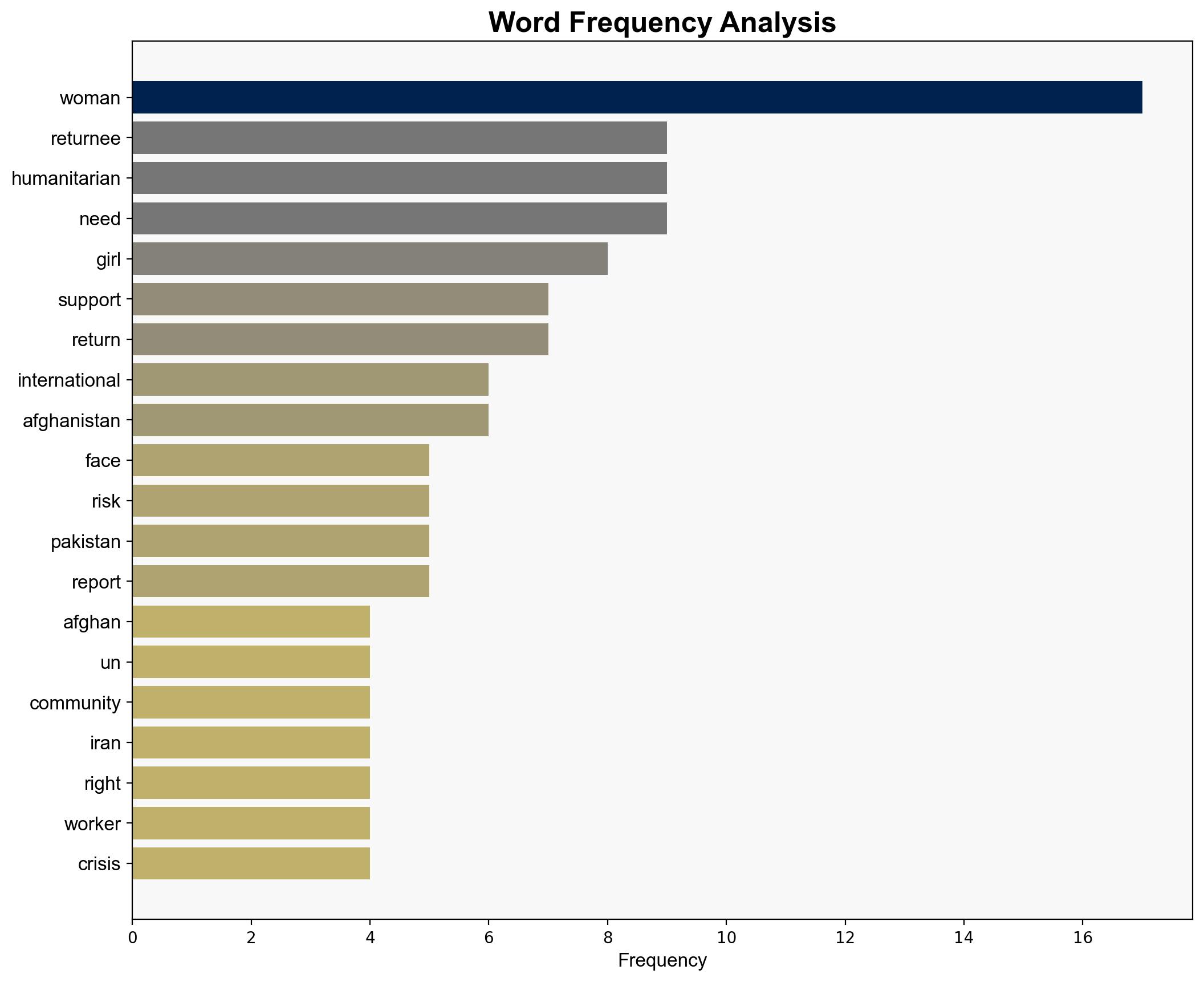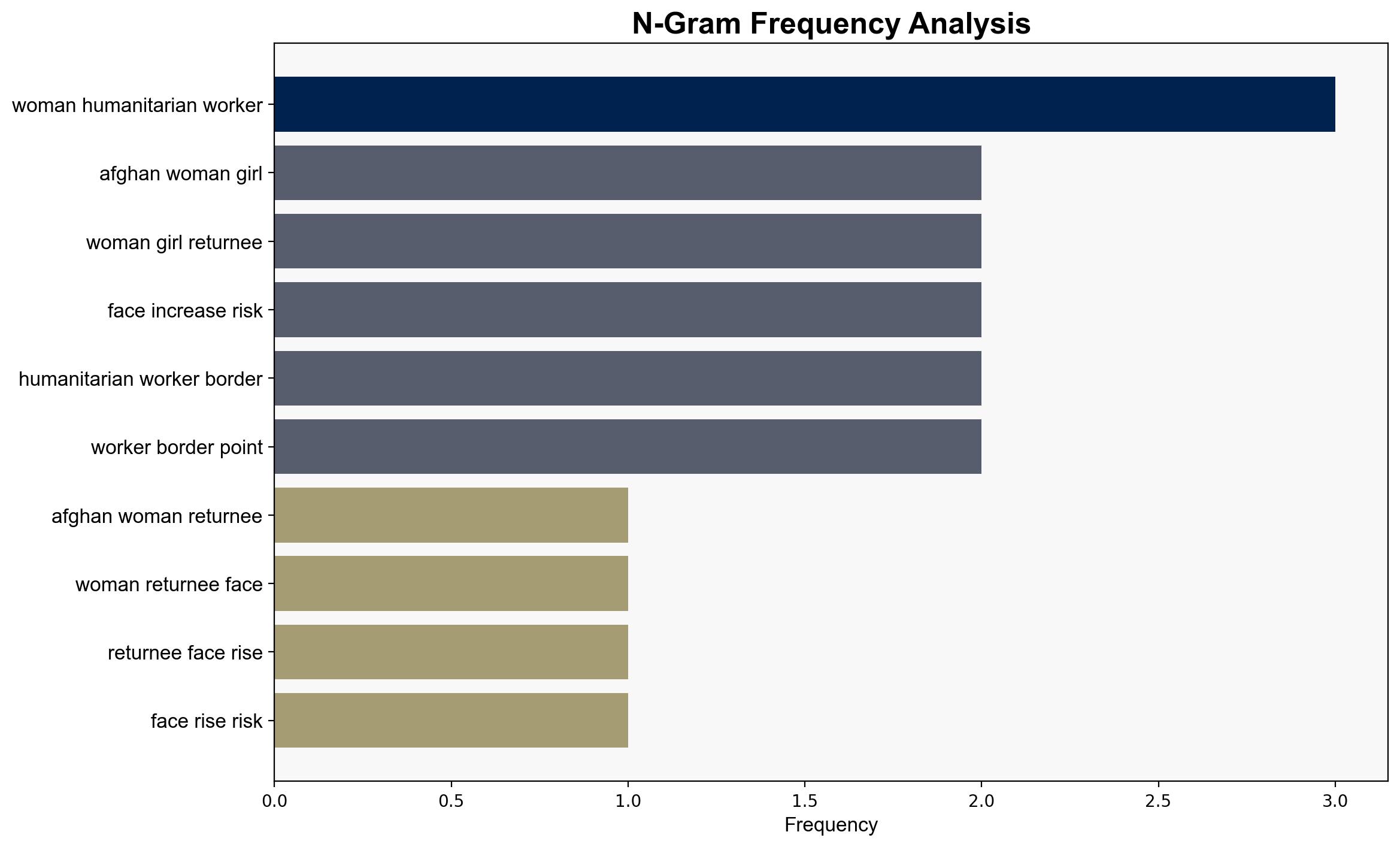Afghan women returnees face rising risks UN warns – Globalsecurity.org
Published on: 2025-08-08
Intelligence Report: Afghan women returnees face rising risks UN warns – Globalsecurity.org
1. BLUF (Bottom Line Up Front)
The most supported hypothesis is that Afghan women returnees face increasing risks due to a combination of restrictive Taliban policies, economic instability, and insufficient international support. Confidence level: High. Recommended action: Increase targeted international aid and diplomatic pressure to ensure the protection and empowerment of Afghan women and girls.
2. Competing Hypotheses
Hypothesis 1: The rising risks faced by Afghan women returnees are primarily due to the Taliban’s restrictive policies and lack of international intervention.
Hypothesis 2: The primary driver of risks for Afghan women returnees is the economic crisis and humanitarian challenges, with Taliban policies being a secondary factor.
3. Key Assumptions and Red Flags
Assumptions:
– Hypothesis 1 assumes that Taliban policies are the main barrier to women’s safety and empowerment.
– Hypothesis 2 assumes that economic and humanitarian factors are the primary threats.
Red Flags:
– Potential bias in underestimating the impact of Taliban policies.
– Inconsistent data on the effectiveness of international aid and its reach.
– Lack of detailed information on local community responses to returnees.
4. Implications and Strategic Risks
The situation poses risks of increased poverty, social instability, and potential radicalization if women and girls remain marginalized. The lack of access to education and employment could lead to long-term socio-economic decline. There is also a risk of international reputational damage if global actors fail to respond effectively.
5. Recommendations and Outlook
- Increase international funding and support for NGOs focused on women’s rights and empowerment in Afghanistan.
- Engage in diplomatic efforts to pressure the Taliban to relax restrictions on women.
- Scenario Projections:
- Best Case: International pressure leads to policy changes, improving conditions for women.
- Worst Case: Continued restrictions and economic decline lead to a humanitarian crisis.
- Most Likely: Incremental improvements with ongoing challenges due to limited resources and political will.
6. Key Individuals and Entities
Susan Ferguson, UN Women Special Representative; Graham Davison, CARE Afghanistan Director.
7. Thematic Tags
national security threats, humanitarian crisis, women’s rights, regional focus





